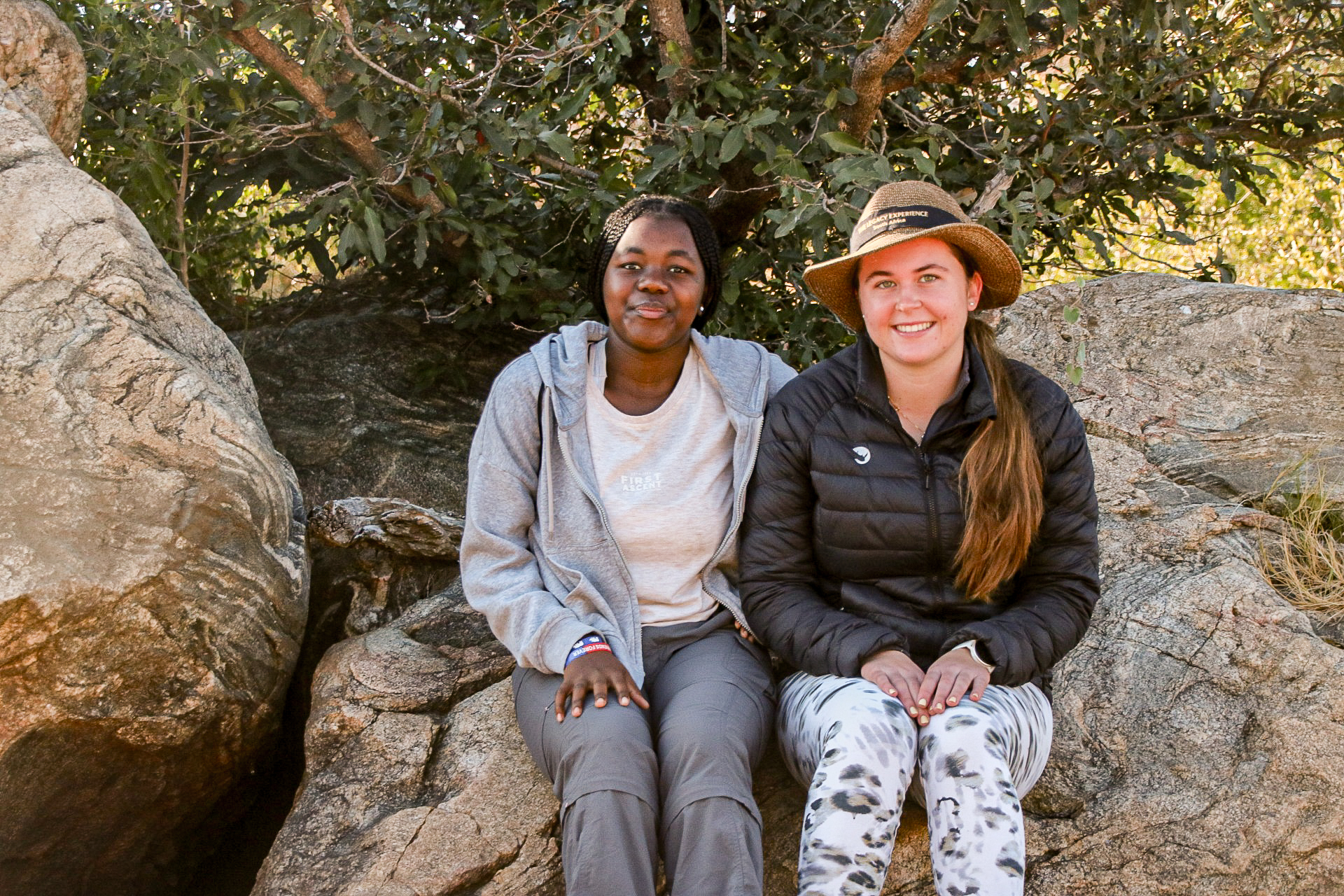Big Trees Project
Vulture Tree Surveys flying smoothly.
Elephants Alive continues to conduct vulture tree surveys in the Associated Private Nature Reserves (APNR) for the 16th year in a row. The surveys, which began in 2008, assess the impact of elephants on large trees that are nested by vulture species. These surveys help identify trends in impact and potential areas of concern. The Klaserie and Timbavati PrivateNature Reserves have already completed their surveys for this year. In the Klaserie, the team surveyed 51 knobthorn trees (Senegalia nigrescens) containing vulture nests.

Although this species is the most common tree containing white-backed vulture (Gyps africanus) nests in the APNR, they are more vulnerable to elephant impact than the larger trees in the riparian zones. The team was pleased to find that all the surveyed trees in Klaserie were still standing in 2023. The surveys in the Timbavati assessed 55 trees in both the central woodland regions and along the riparian region of the Timbavati River.This change in habitat allowed for a wider variety of tree species to be incorporated into the survey, including jackalberry (Diospyros mespiliformis), apple leaf (Philenoptera violacea), sycamore fig (Ficus sycomorus), and weeping boer-bean (Schotia brachypetala). Notably, the team recorded the first silvercluster leaf (Terminalia sericea) since the 2018 surveys. The vulture tree survey is progressing smoothly, and a detailed analysis will be released soon.

Robin Cook's study on four mitigation methods (beehives, creosote, concrete pyramids, wire-netting), which have been used to protect marula trees from elephant impact in the APNR, has been published. The study assesses the strengths and weaknesses of each method and places them into perspective for tree protection. Riparian-based trees are generally larger and have significantly lower elephant impact scores than their woodland counterparts. The trees in the Timbavati from the 2022 surveys were still standing in 2023. A detailed analysis of the vulture tree surveys in the APNR is being carried out by Robin Cook as a part of his PhD with the University of the Witwatersrand, Johannesburg.
We would like to thank the APNR managers and landowners for allowing us to carry out these surveys and extend aspecial thank you to this year's field assistants - Dr. Anahi Hidalgo Cordero, Cassander Engelin, Daphne Vlietman, Amber Maas, and Mandie Gericke.


Be the first to know
Keep up to date with our wildlife conservation efforts and progress in our Eco Children community, and be the first to know about lodge specials running in the reserve by signing up for our newsletter.





